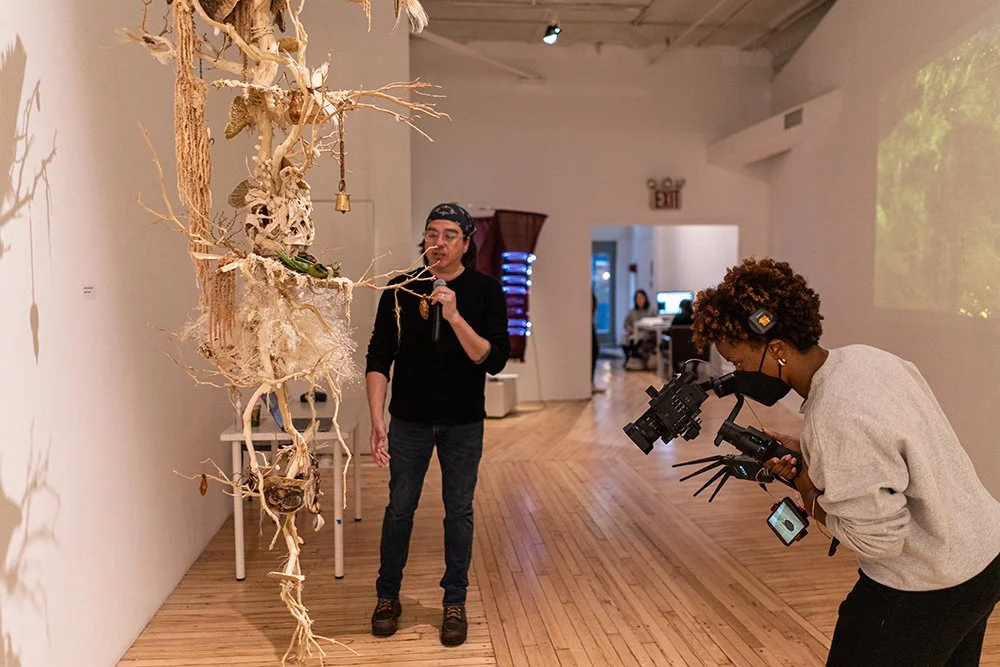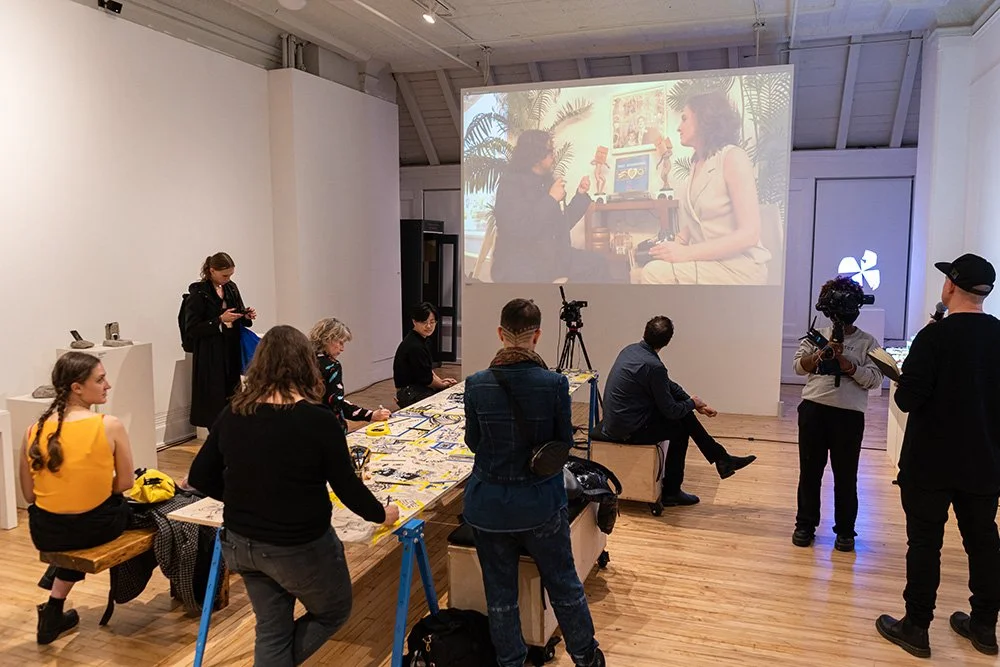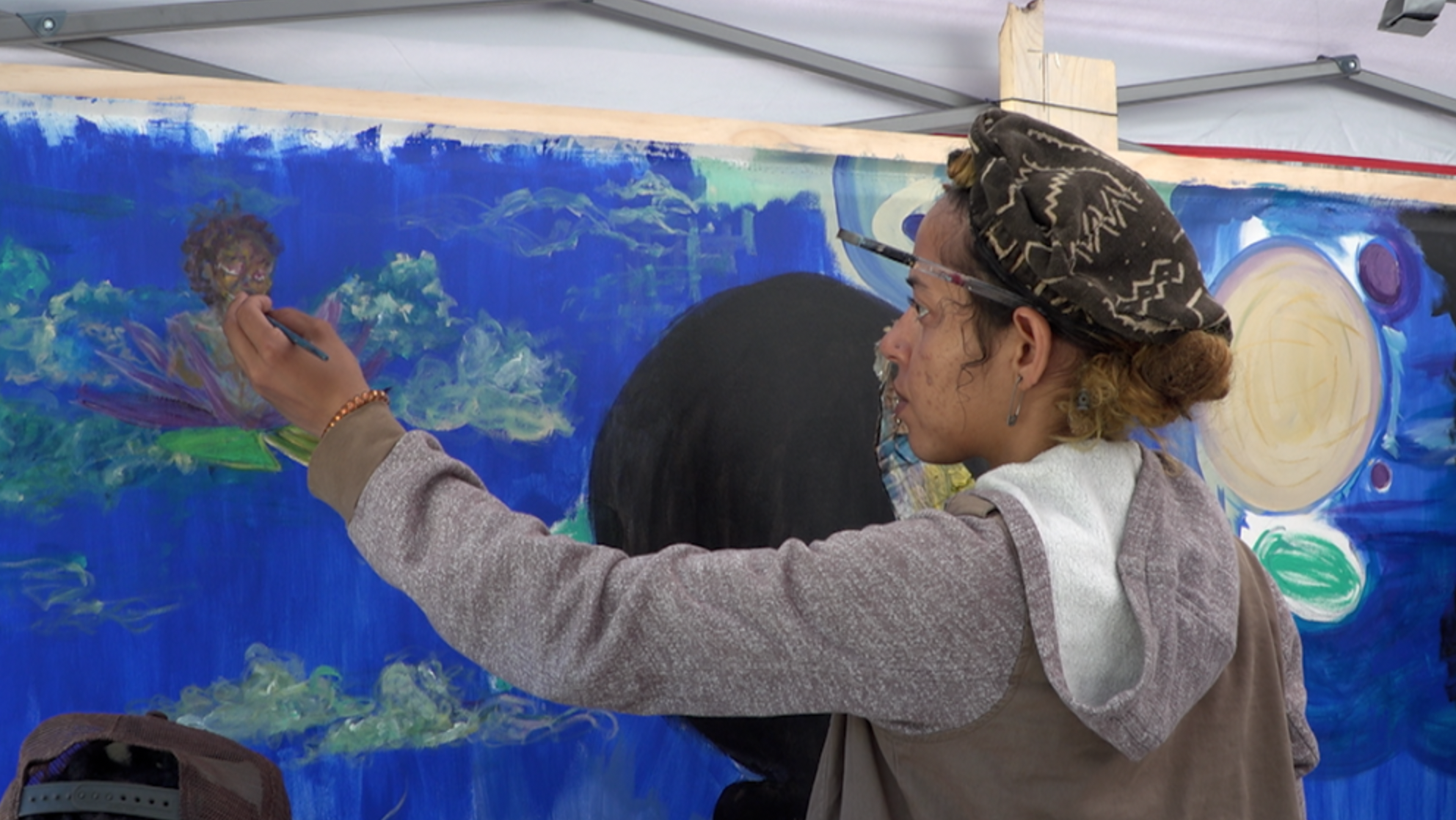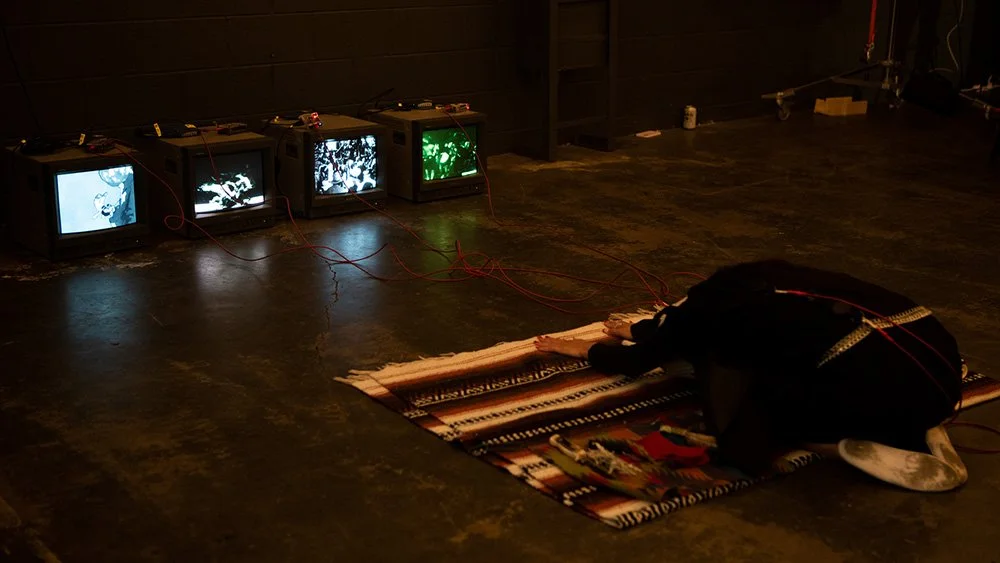On Re–Fest 2023: A Remembrance
Ajani Brannum
On Re-Fest 2023: A Remembrance
June 20, 2023
This is an unedited, real-time reflection on Re–Fest 2023 by Ajani Brannum as captured by Zoom's closed-captioning software.
Hello, everyone who's watching and listening. This is Ajani Brannum. I'm an artist and learner based in Los Angeles. Along with Stacy Dawson Stearns, I co-hosted the Long Table that was part of Re-Fest 2023, and I'm here to deliver some reflections and lingering thoughts—some residue, if you will—about the event. I hadn't planned to use Zoom captions initially as a way of recording this, but I was thinking about something that one participant in the New York wing mentioned during the Long Table. They talked about "describing and sharing work across the senses," and they linked that concern to disability justice specifically. So it got me to thinking about captioning and Zoom more generally is a tool of access—thinking on an even broader scale, about how questions of access have enabled assembly, coming together, reflection, and synthesis—even, and especially, for folks who may not consider themselves marginalized.
So as we return to the theme of this year's Re-Fest (which was Re–New), I'm still thinking about relation as something that beings make together across differences, right? Across genders, sexualities, nationalities, classes, abilities, et cetera. Or at least we'd hope so. One thing that we know (and that the work in this year's Re-Fest reminded us) is that relation is not as easy as I might make it seem. It's not as ideal as I might make it seem, and it's not as smooth as one might hope. A lot of the work dealt with loss, fracture, recovery, and remembrance, literally putting things together again after they've been dismantled or upset by the force of colonization, capitalism, and all their attendant operations.
The folks who were gathered for the long table had many different relationships to fracture: indigenous artists talked often about colonization and the lands that have been stolen from them, and are still occupied by settlers. I think of the black artists who talked about relationships to enslavement.
I think about artists of various racial and ethnic backgrounds, who talked about capitalist extraction more generally, and I think about all of the artists who were involved, who mentioned how these things intersect with questions of gender, sexuality, class, and nationality. One thing that people really seem to be convicted about is that colonization is an event that isn't just about the stealing of land (though it is very much about that). When we think about colonization, we're also talking about a violent disruption of the knowledges that people have had of themselves, the communities they [are] in, and the other beings that made their life possible. One thing we were reminded of, though, is that these forces haven't erased anyone's pasts. Rather the past remains embedded in the present, and our goal is to figure out how we can use technology—or technologies—in order to return to these life-giving ways of being with one another.
During the Long Table, I suggested that technology is simply a way of getting things done. I reminded the group that technology comes from the Greek word techne, which means craft, right? So we talked about technology as whatever means people use to devise or restore ancient knowledges. And we could put "ancient" in quotes, but restoring ancient knowledges into the present, even if that attempt is partial, or if it combines old and new ways of knowing, which almost always happens. As we discussed ways of bringing the past into the present, or even imagining the future in the present, and thinking about how all of these time scales are always working together, we kept circling around the idea of family and intimate relationship as one of the more accessible ways of recovering these knowledges from the past. I think family is a great place to dwell, because it concerns how we are situated in the world. It concerns what we've inherited—often literally—and it concerns how we understand our relationship to race our relationships, to class our relationships to nationality and gender and ethnicity, and so on. There [were] a couple people who talked about the concept of forgiveness, and thinking about our most intimate relations as a place to examine our wounds—and, if possible, to begin to heal them.
There are many artworks from this year's Re-Fest that stay with me. Some of them include Iman Person's untitled vessel, which was just wonderful to witness in person because it's a vessel that appears fractured, but actually gives off this really wonderful smell, which sort of hearkens back to the plant-based forms that the work invokes. I'm also thinking of Kira Xonorica's Coral Reef: I Am Presence, which was a digital collage made with the assistance of AI and other digital technologies, in order to think about gender (and transness, specifically) as a sort of reservoir of information about indigenous ways of knowing—whether past or future. I also think about Marcus Kuiland-Nazario and Paul Donald's installation and performance called Macho Stereo, which deals very explicitly with the theme of forgiveness as it might manifest in relationships between fathers and their sons. There are, of course, many more works in this year's Re-Fest that deal with these themes and other related ones.
But now I'm sitting with the residue of our time together at Re–Fest, and I hope that you continue to sit with the residue of this recounting or this reflection. I hope that even if you weren't there at Re-Fest, in person or online, you can continue to search for the seeds of the past and the future that live in your present.
Ajani Brannum (they/them) is an undisciplinary artist who works between performance, writing, digital media, facilitation, and divination. Guided by a commitment to psychospiritual inquiry, Ajani examines the stories that structure our being-in-the-world. Ajani hails from Anchorage, Alaska, and is a graduate of the South Carolina Governor’s School for the Arts and Humanities; they hold an AB in English and a Certificate in Dance from Princeton University, and a PhD in Culture and Performance from UCLA.






